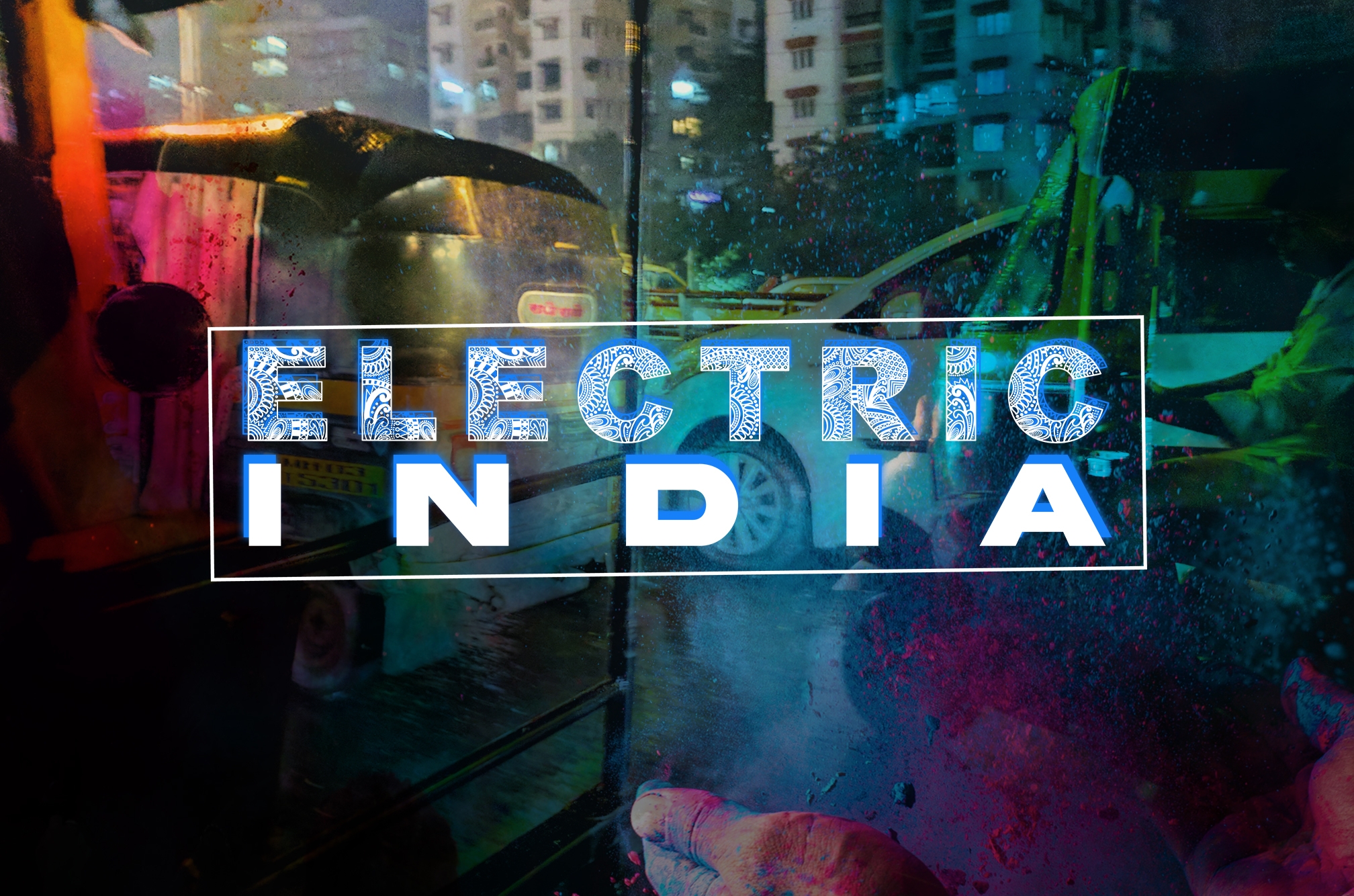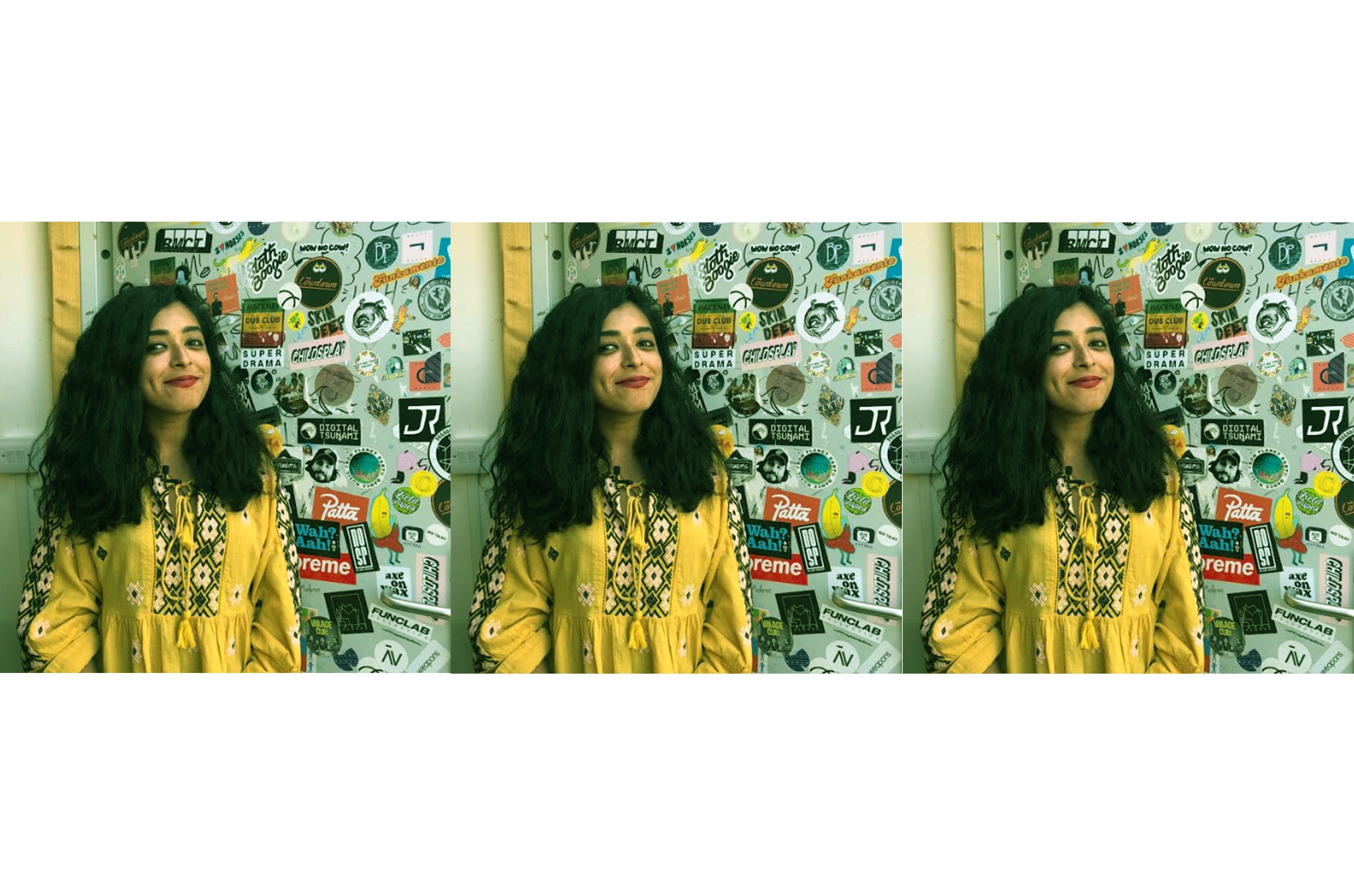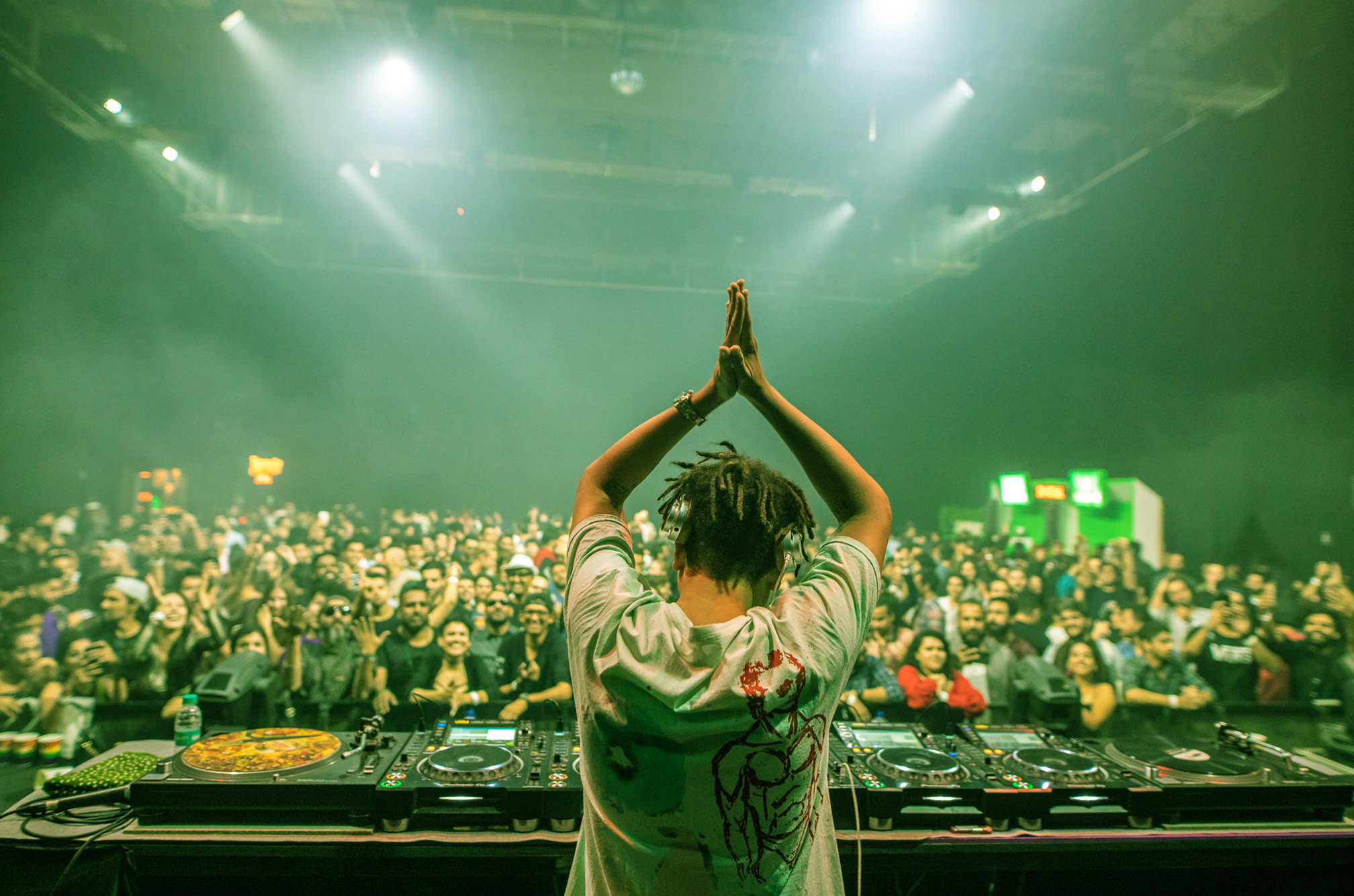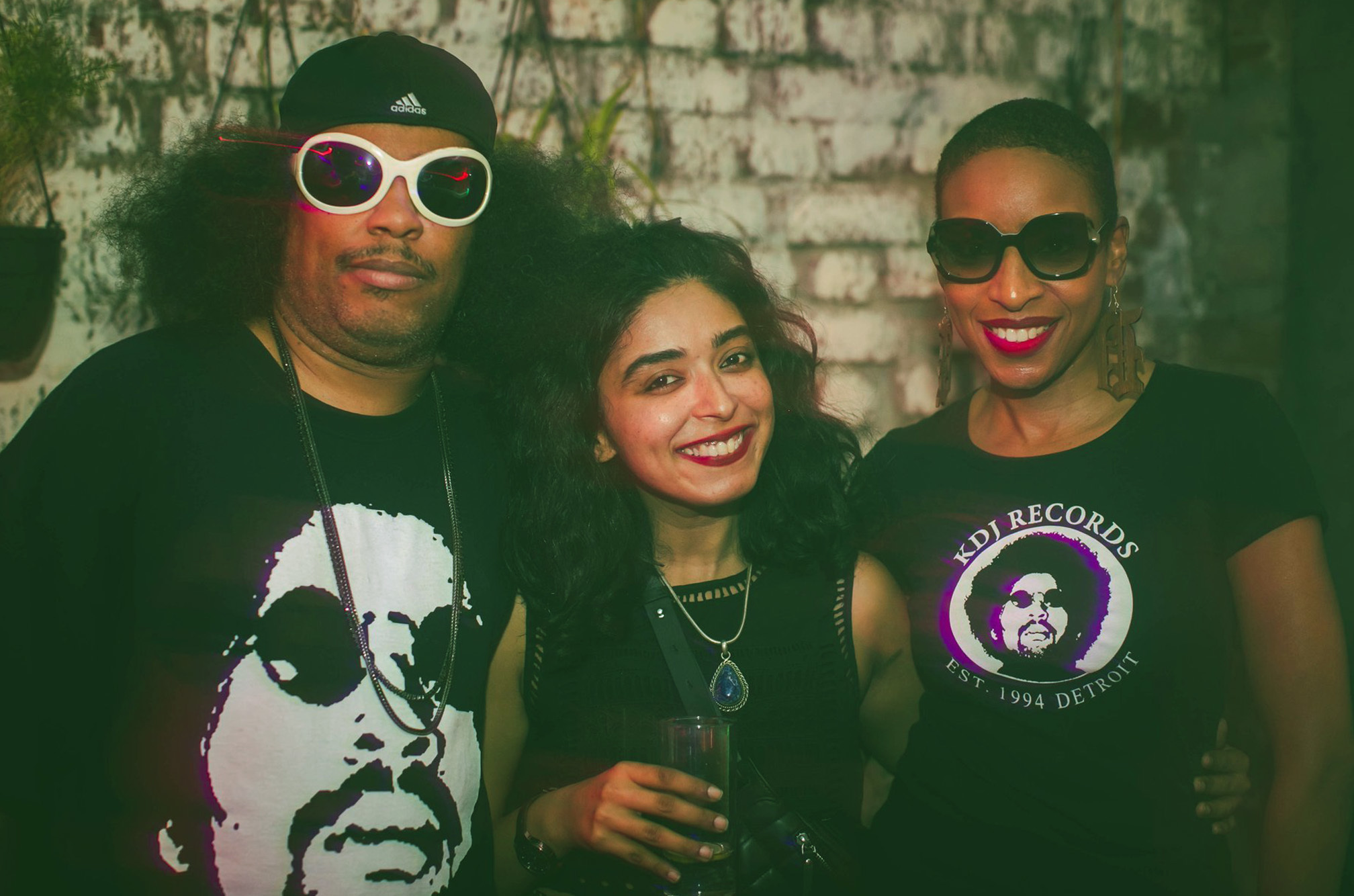 Features
Features
Electric India: WAVLNGTH founder Aneesha Kotwani is set on a global agenda
Nothing is too much to take on for the ambitious music entrepreneur
Electric India is a new monthly feature that explores what’s bubbling in and around South Asia – from the real players in the electronic music game. From new releases, to festivals to club culture and trending artists, we go deep inside the scene and provide a monthly snapshot of the latest currents in India. From homegrown techno to imported festivals and secret parties, the music diaspora of India is so culturally unique that it deserves its own attention.
From DJs, artists and producers, their managers, festival promoters, labels, venues and other driving forces, we tap the seen and unseen from a variety of electronic and dance scenes across the country. Every city and area has its own culture and approach to music culture, some are further ahead than others — so join us as we try to figure out why they are intriguingly different and what makes them so relevant.
For our final Electric India adventure of 2020, before we dive deeper into the sub-continent’s electronic music diaspora, we decided to take a small sidestep away from the frontlines of the South Asian dance music industry — DJs, producers, promoters and label heads, and speak with someone who is creating a new, community-style hub that revolves around music, but also speaks to the souls of musically-minded creatives generally. Aneesha Kotwani formed WAVLNGTH in Mumbai in 2016 as a way to offer more holistic solutions for touring and penetrating the Indian market. Besides creating tours and events for Indian and international artists through the hub, Aneesha also curates playlists, runs an independent media platform called Humans of Music and lends her voice to a variety of major radio platforms. It sounds like a lot and it is, but it’s all come about organically and feels very much like an attraction-based music-creative community that hasn’t had to rely on social media hype or flashy PR to get there.
We had a chance to sit down with Aneesha and get her back story and insights – and a peek at her future.
But before we get to that, can you please tell our readers about how you got started and how WAVLNGTH came to be?
Hey, thank you so much for the opportunity. I have been busy this year indeed, in fact 2020 has been a great year in a lot of ways. But things started off when I moved to the UK in 2009. Living there was my first proper introduction to underground dance music and since then it’s been no looking back. I stayed back after finishing my Masters, as I had a two-year work permit and initially wanted to pursue something in music — but with the industry being so competitive, I ended up doing an internship and after 3 months it got a bit tricky for me financially. But I took up whatever job offers came my way for stable income and worked with UK-based promoters Unleash on the side so I could learn the workings of putting together an event.
After 2 years, visa complications brought me back to India, and the lack of places where one could hear good music led me to start something of my own. I worked with a friend for three years and we were putting up all kinds of nights - from club events, to open airs to studio gigs - but we decided to go our own ways by the end of 2015. Four months later I started on my own from scratch because I couldn’t see myself working for anyone, and more importantly I just didn’t feel aligned with anyone’s musical vision (with no disrespect to anyone) hence the name WAVLNGTH. Over the years WAVLNGTH has evolved from being a touring agency, to a creative agency with my personal interests extending into radio, artist strategy, management and content.

WAVLNGTH covers such a variety of musical styles. Did you start out as a dance music festival girl, or were your tastes always very eclectic?
Aneesha: I started out as a proper dance music girl. I did go through a trance phase in the beginning but then saw myself delving deeper into the genres of house and techno. There are so many sub-genres in dance music that one can get lost, but four to the floor still has my heart. WAVLNGTH does cover a variety of musical styles because I felt I had to do something different in order to stand out. Also growing older has made me more open and appreciative to all genres of music. People in India prefer harder music, and the younger generation is quite into the left-field sound as well but you will always find me curating nights offering a more happier and groovier sound. So I’m quite the lone ranger in that regard, and from just counting on my friends to show up initially, I started focusing on booking interesting acts and really promoting the shows well until we started to make an impact. Of course, whenever the friends do show up it feels great nonetheless! But to sum it up, I dig music that has soul to it, it has to make me feel something for me to book it.
Is there a specific time you can point to when you decided being a fan wasn’t enough and you said, "That’s it, I want to be a part of this industry"?
Aneesha: When I was in London, I was out pretty much every weekend and there definitely were a lot of moments when I thought I wanted to recreate what I felt at great parties, so I could share that feeling with others. I am a deep person by nature, and I can say with absolute conviction that music, and going to gigs and festivals has made me who I am today. I have met such incredible people along the way, some who are still a part of my life while others, even though they played a small role influenced in their own way.
My dream is to combine music and my love for travel together – so I began visualising and perceiving myself as a global music professional and started taking the steps towards that goal. Just staying focused on the music scene in India is not enough – but the idea of taking India with me across the globe is where it gets exciting!
What were the first DJ or electronic shows and tours you put on, and how did that go?
With a no-genre barred approach, the first few artists that were booked under WAVLNGTH were Tasker, Bradley Zero, hip hop collective Livin Proof, Audiojack (on my birthday) and Parra for Cuva. These bookings show the diversity in the music genres from eclectic, to hip hop, to tech or techno, house and live electronica! All the shows went exceptionally well, however Mumbai being my home turf, we always brought the A-game compared to other cities. The intention was to work with artists who weren’t just producers and DJs, but also contributing to the music eco-system via running a label or hosting a radio show, and kindred spirits with more of an all- round personality.

How did you first get involved with creating playlists and was there a strategy behind it? Was it for yourself, or the artists you were managing – or both?
I wanted the WAVLNGTH website to be a one-stop shop for all things music - so that anyone who visits the site can access all the radio shows, mixes, playlists etc. in one place. The playlists were something that was started during lockdown, as I wanted to involve people who weren’t part of the industry but who attend shows; the audience members, who are actually the most important component for a good party. It made sense to me because finding new music all boils down to recommendations — someone recommends a tune to you at some point and then you start digging deeper.
Your popular Instagram blog Humans of Music was inspired by the viral photo-blog Humans of New York by Brandon Stanton. What made you decide to start it?
I co-run Humans of Music with my best friend Nicky Ramnani. We often catch up at night in my garden or terrace and both of us being music heads, a lot of our conversations revolve around music - the highs, the lows, the challenges, opinions on the scene etc. This made us realise that if we have so much to say then everyone who works in the industry or is a musician must have their own unique story to share. We thought this would bring the music community closer and also provide hope, motivation and inspiration to a lot of people, making them feel they’re not alone - as working in the music industry is challenging and can often make one feel lonely.
I would love to change the name of the blog now - Humans of New York was buzzing at the time we decided to start this initiative, so we decided to play off its name - however we dig our logo a lot, which is an inverted tuning fork that also looks like a stick figure. So it’s staying Humans of Music.

You sell original merch on the WAVLNGTH site, and it's a great canvas for local artists to express themselves, from tees to vinyl and even sheet music by your artist Tarun Balani. Do you have plans to expand this e-commerce side more in the future?
Yes! Most Definitely. With events and tours at an absolute standstill during the lockdown, I had to create new opportunities for myself. In fact, lockdown or no lockdown, when you are running your own show you have to constantly be on your toes to see how you can innovate and be ahead of the curve.
Merchandise is something I have always wanted to explore, and with my inside out approach i.e. India to the world — I thought of Indian art too. One of my best friends, Lovedeep Gulyani and I executed our first campaign with Everpress, and brought together 15 designers from the country to create 15 designs around the message of hope and music therapy. We wanted them to include an Indian cultural element in their designs so that it might appeal to an international audience, and for our first attempt I think we did really well! The idea is to keep thinking of interesting and unique ideas for merchandise, not limiting ourselves to just tees and totes, but with music being at the core of all the designs. This feature also extends to the artists I work with, as both Tarun and Kavya will also be releasing merchandise unique to their aesthetic and musical identity. It’s an exciting time because all like-minded people are coming together to create some magic!
You recently landed a BBC Asian Network residency to present alternative dance music from across India. How did that come about, and what has the experience been like?
Aneesha: I have had a lot of lockdown silver linings, and how I landed the BBC Asian Network residency is quite a story. I had toured Eliphino in 2019, and for our promotions we ran this blog piece called the photo story where we reached out to various artists peers and colleagues from the industry. One of his friends also happened to be a producer for the Asian Network Residency shows and I got a random message on Facebook one day asking me if I’d like to send a pilot over. Coincidently, another friend, Josie Carder and myself were already working on a pilot since we have been collaborating on her Soho Radio show for 2 years now. But unfortunately because the Asian Network is about presenters who have Asian ethnicity, it didn’t quite work out for us. But Josie and I have laid plans working together over the years to bridge the gap between India and the UK — my two homes — and I couldn’t ask for a better person to do this with.
The experience so far has been absolutely amazing. I am just one episode in, and the next one airs on the 27 December. Because I don’t DJ — I use radio as a medium to represent what is happening musically in my country across all genres, and I like to shine a light on up and coming producers, because they never get noticed otherwise. You see the same names on line ups which after a point gets mundane. This year has really made me think about how I can create value with my work - other than just making people have a good time - and this desire has found opportunities where I can do exactly that. It all comes down to your determination, if you sincerely want something the universe will make it happen.
2020 was obviously a very difficult year for everyone in the events and nightlife business. India, and Mumbai has been hit particularly hard. How have you coped? Where do you see the Indian electronic music scene headed going into 2021?
I do understand and empathise with how difficult this year has been, but one thing 2020 made me realise was that uncertainty existed even before the pandemic. The pandemic just made us accept it and appreciate living in the present even more. I practice Buddhism so I channeled a lot of energy into strengthening my spiritual self and have been on a roll ever since. From networking, to taking part in online festival workshops and lab sessions, to exploring radio opportunities and wrapping up a music documentary on the Nyege Nyege Festival, we also rebuilt a brand new website — the key was to just to keep myself busy and believe that I can achieve my goals even in the midst of hardships. I just trained myself to enjoy the process and not focus too much on what’s going wrong.
I think 2021 is going to be a tough year too, even as we try to regain the momentum. With news about the new COVID strains, I really don’t know what to believe or not believe, except that I have to be careful and responsible. Personally, I am not in the head space to put together events, even though promoters in the country have resumed in full swing. Corona fatigue has hit people hard. At WAVLNGTH, we only organise a few gigs during the year — I like to be selective and make sure that we give people a solid experience - so I am in no rush. Although I would love to organise a WAVLNGTH festival at some point where I can really showcase my curator side.
And finally – please give us 5 big tunes you'd love to share with our listeners!


